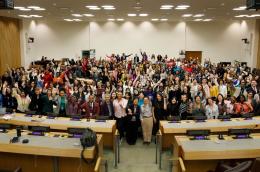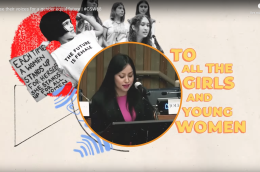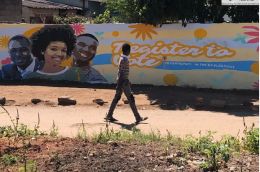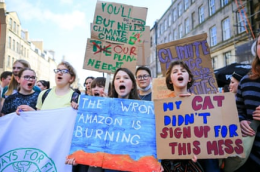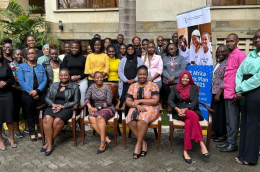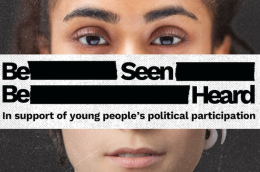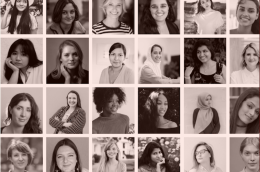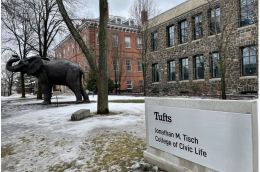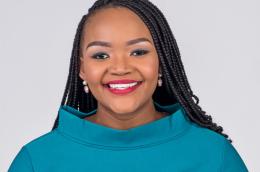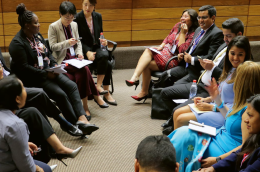Youth
Main navigation
After an invigorating three-day assembly, the CSW68 Youth Forum, held on 15–17 March 2024, closed with renewed commitments and actionable insights. Aligned with this year’s Commission on the Status of Women priority theme, “Accelerating the achievement of gender equality and the empowerment of all women and girls by addressing poverty and strengthening institutions and financing with a gender perspective”, the Forum stood as a beacon for young voices ready to echo through the halls of global decision-making.
Meaningful engagement and diverse voices
The Youth Forum brought together a vibrant mosaic of more than 400 young leaders from across the globe, ranging from activists to experts with a rich diversity of experiences, including adolescents, young people with disabilities, indigenous youth, LGBTIQ+ youth, and more, adding depth to the dialogue on poverty eradication and galvanizing efforts to push forward for gender equality.
“It is high time that we stop thinking about you as the leaders of tomorrow and start working with you as the leaders of today”, said UN Women Executive Director Sima Bahous.
Read here the full article published by UN Women on 20 March 2024.
Image source: UN Women
Youth leaders from around the world have come together to discuss their vision for ending poverty and advancing gender equality at the 68th session of the Commission on the Status of Women (CSW68) at the UN Headquarters in New York from 11 to 22 March. In this landmark election year, when 2.6 billion people are expected to cast their votes, young people – as voters, community members, and leaders – hold the power to demand higher investment in gender equality in countries, regions, and globally.
Here are the voices from some young women leaders attending CSW68 and the annual Youth Forum, reflecting on their priorities, challenges, and hopes.
Read here the full article published by UN Women on 18 March 2024.
Image source: UN Women
The Zimbabwe Election Support Network (ZESN), a coalition of non-governmental organizations that promotes democratic elections has called for more youth participation and representation in Zimbabwe’s electoral and governance processes, citing the low number of young lawmakers in the country’s parliament.
In a statement highlighting the crucial importance of youth involvement in electoral affairs as enshrined in the constitution, ZESN said that despite constitutional provisions and global mandates advocating for youth empowerment, youth are still underrepresented in key electoral, governance, policy and legislative affairs.
The National Youth Day, which falls on February 21, was proclaimed and introduced by the Zimbabwe government in 2017 to recognize youth and celebrate their contributions to the development of Zimbabwe as well as for the young people to emulate the leadership values of the country’s liberation heroes.
Click here to read the full article published by 263 Chat on 21 February 2024.
Image source: 263 Chat
For decades, we’ve seen a so-called gender gap in American politics. On average, men lean more conservative than women on a host of economic and social issues. As a result, marginally more men have tended to vote Republican and marginally more women have tended to vote Democrat.
Among younger Americans today, it seems that this erstwhile gap is quickly becoming a chasm.
More young men are skewing rightward, and further rightward compared to the rest of the electorate than was true for older generations. Meanwhile, more young women are skewing leftward, and much further to the left compared to the rest of the electorate than ever before.
Men are not from Mars and women are not from Venus, but the deepening gender divide reflects the fact that partisan Republicans and partisan Democrats do increasingly inhabit what might as well be different planets. This polarization, and its correlation with sex, is constitutive of three problems in our politics that are creating even deeper crises in our broader culture.
Click here to read the full article published by The Hill on 15 February 2024.
Image source: The Hill
Good morning.
Youth culture has long been associated with liberal or progressive thinking, protest and resistance. But the idea that the young are a homogenous group of lefty radicals has been challenged in a new study from King’s College London that suggests there is “an emerging gender divide” between young men and women.
The research is based on a representative survey of 3,716 people over the age of 16 and has revealed some stark differences on gender issues like the impact of feminism, terms like “toxic masculinity” and has even found that, in some cases, young men are no more supportive of gender equality than men in their 50s and 60s.
This report is part of a wider trend suggesting that gen Z (those born roughly between 1997 and 2012) are not necessarily as left leaning as many may assume. A survey conducted last year by Change Research found that young women in the US lean more politically left than young men, with 41% of women identifying as progressive in comparison to 24% of men.
Click here to read the full article published by The Guardian on 2 February 2023.
Image source: The Guardian
The training brought together 40 participants from various media houses, including female politicians, FAWE, International IDEA, FEMNET, and The Association of Media Women in Kenya (AMWIK) personnel. The main objective of the training was to establish a pool of journalists and social media influencers who are gender-responsive in their reporting and who will objectively report stories of women in politics.
Women in politics have been on the receiving end regarding media framing and agenda setting in the political arena because leadership is often believed to be a male function in the world today. The narrative is, however, changing with more women in Kenyacoming forth to vie for leadership positions.
Click here to read the full article published by International IDEA on 19 January 2024.
